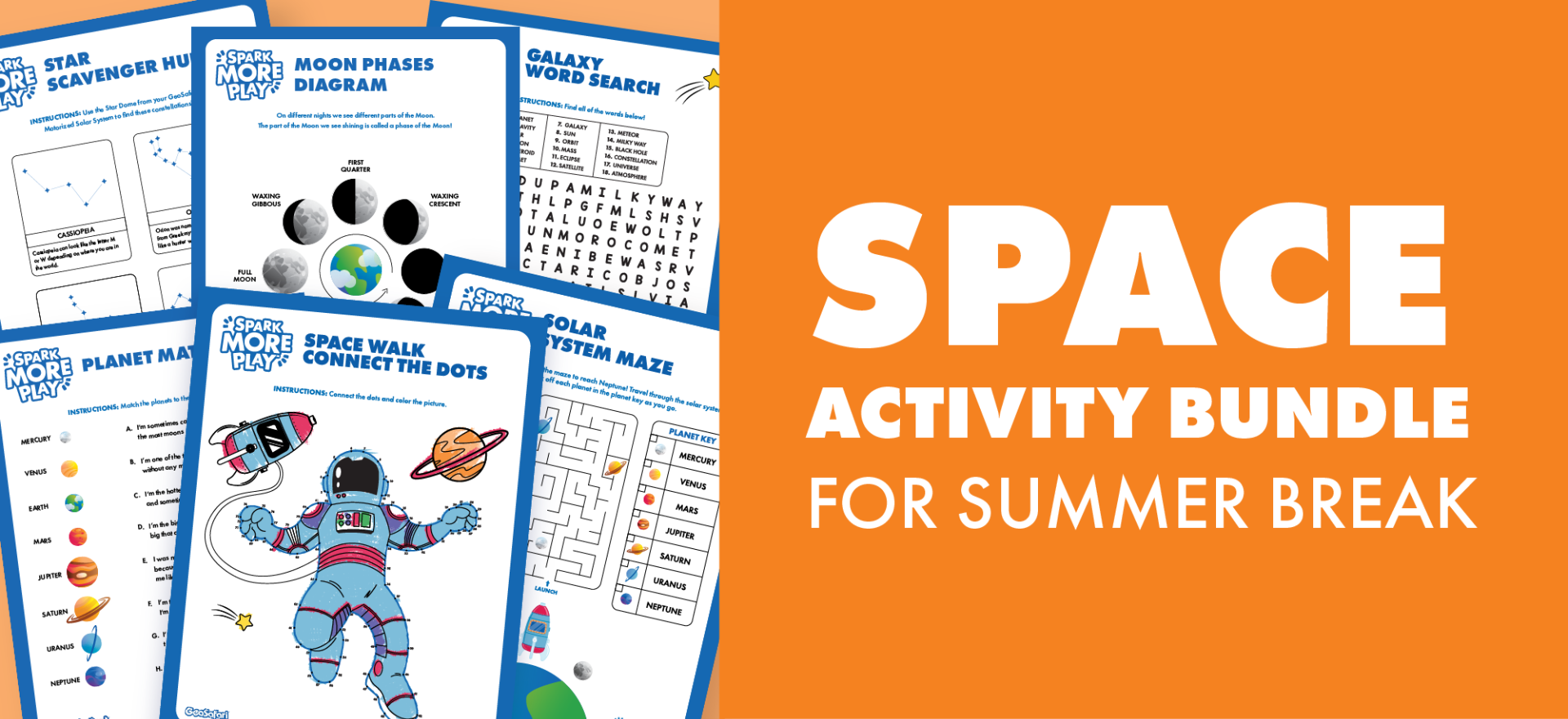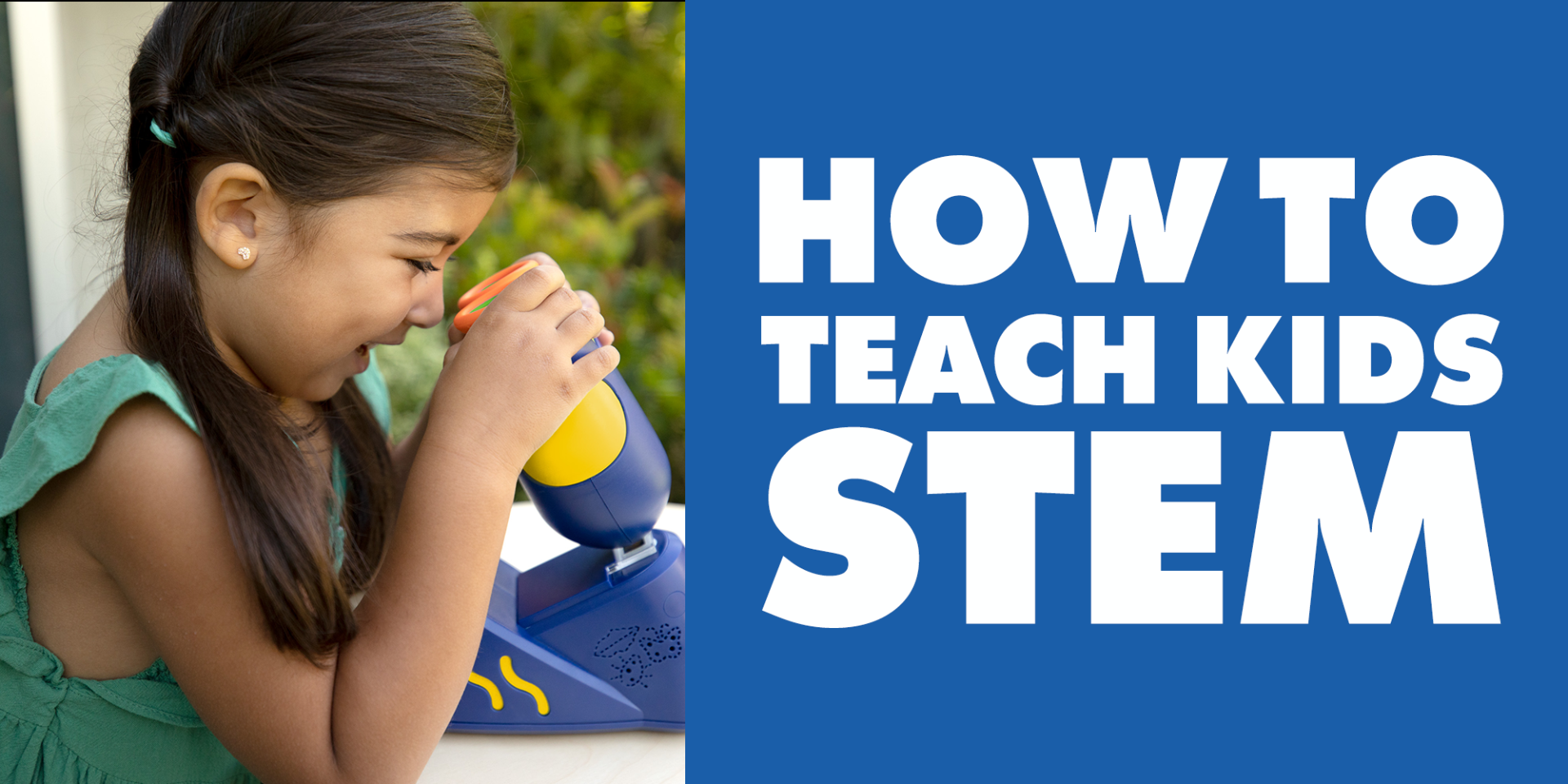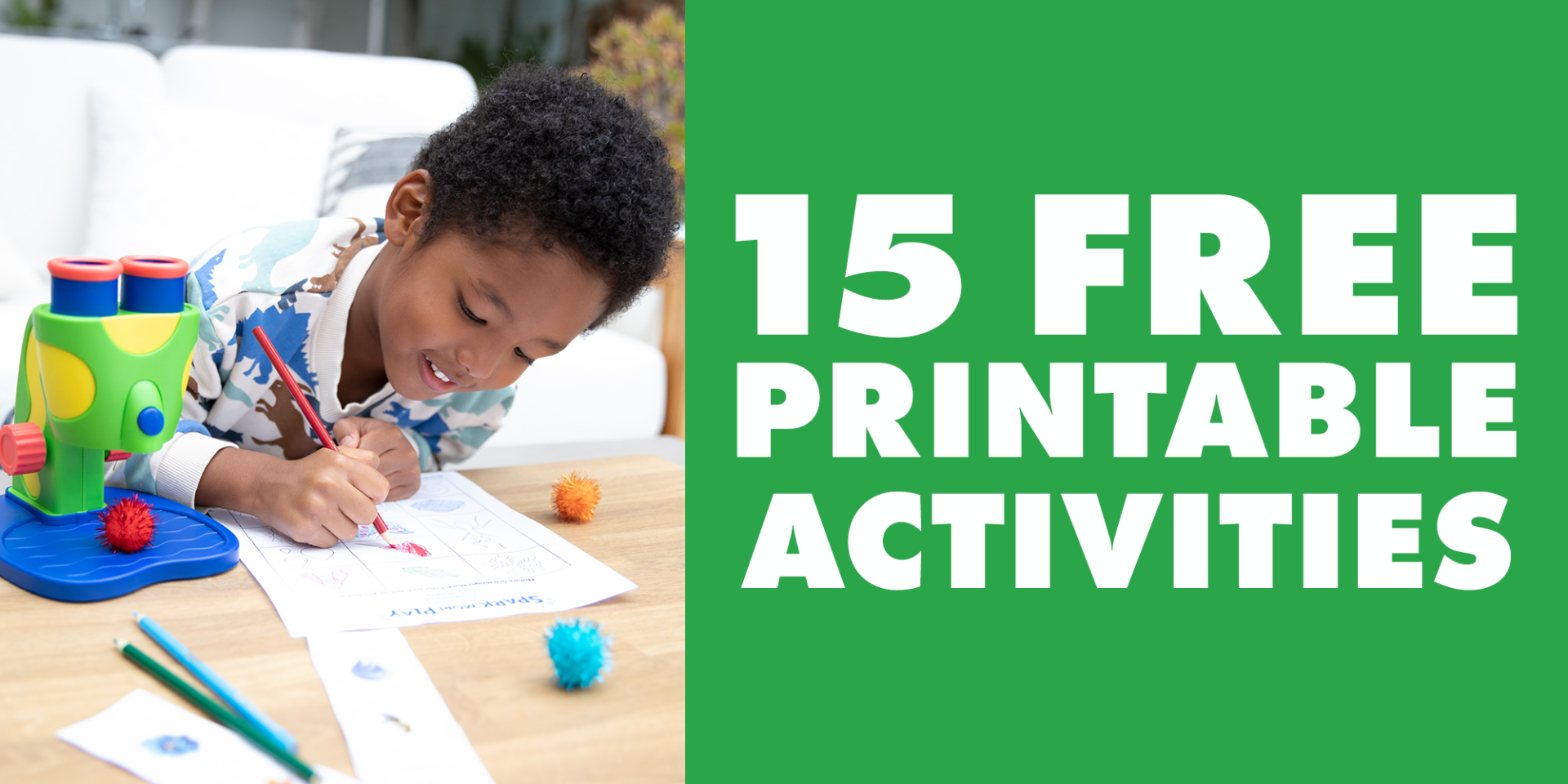
#UnpluggedPlay – What Play Is Teaching Our Kids
- EI Editor Posted On Nov 9, 2016 | UnpluggedPlay
Why do we parents breathe a sigh of relief when our kids put down their tablets and pick up an action figure, dress up outfit, or hula hoop? Because we know balance is key! Tablet time isn’t tragic – it just needs to be balanced with reading, drawing, building, imagining, exploring, and exercising. But why? What is it that kids get out of #UnpluggedPlay that they don’t get anywhere else? Read on to find out. Pretend Play – There’s really nothing sweeter than listening to your kiddo act out a scenario using action figures, dolls, stuffed animals, or play props like kitchen and doctor sets. But pretend play isn’t just cute! Dramatic play helps kids explore the different roles they see in their lives, from parent to friend to baker to builder, developing not just an understanding of the world around them, but also building empathy skills. Pretend play with a friend helps kids learn to take turns, play cooperatively, and problem solve. Coming up with pretend story lines develops imagination and creative thinking skills. And “acting out” that pretend play scenario develops vocabulary and language skills.
Pretend Play – There’s really nothing sweeter than listening to your kiddo act out a scenario using action figures, dolls, stuffed animals, or play props like kitchen and doctor sets. But pretend play isn’t just cute! Dramatic play helps kids explore the different roles they see in their lives, from parent to friend to baker to builder, developing not just an understanding of the world around them, but also building empathy skills. Pretend play with a friend helps kids learn to take turns, play cooperatively, and problem solve. Coming up with pretend story lines develops imagination and creative thinking skills. And “acting out” that pretend play scenario develops vocabulary and language skills. Arts & Crafts – It’s obvious that coloring, drawing, and crafting with tools like Playfoam® develop creativity and encourage self-expression. But creating also develops fine motor skills, the kind required to hold a pencil or paint brush, and bilateral coordination, the process of using both hands together, as in one to hold the paper and the other to cut it with scissors. Artistic creation also teaches trial and error, patience, and perseverance. And, best of all, creating is an incredible confidence booster – no right or wrong answer, just pure joy.
Arts & Crafts – It’s obvious that coloring, drawing, and crafting with tools like Playfoam® develop creativity and encourage self-expression. But creating also develops fine motor skills, the kind required to hold a pencil or paint brush, and bilateral coordination, the process of using both hands together, as in one to hold the paper and the other to cut it with scissors. Artistic creation also teaches trial and error, patience, and perseverance. And, best of all, creating is an incredible confidence booster – no right or wrong answer, just pure joy. Building – Be it with blocks or other, more advanced, construction sets, the benefits of building are nearly endless. The perfect STEM learning activity, building introduces key scientific principles including gravity and balance, engineering concepts like arches and towers, and mathematic concepts and academic vocabulary including grouping, sorting, counting, addition, and subtraction. And, of course, manipulating blocks develops motor skills and hand-eye coordination, too.
Building – Be it with blocks or other, more advanced, construction sets, the benefits of building are nearly endless. The perfect STEM learning activity, building introduces key scientific principles including gravity and balance, engineering concepts like arches and towers, and mathematic concepts and academic vocabulary including grouping, sorting, counting, addition, and subtraction. And, of course, manipulating blocks develops motor skills and hand-eye coordination, too. Games & Puzzles – Games are great for getting your family laughing and playing together, but they’re good for more than fun! Playing games helps kids develop thinking and reasoning skills, strategic problem solving, spatial awareness, concentration, and focus. Word games develop language skills and vocabulary, while dice and math games like Even Steven’s Odd™ build and practice math concepts and facts. Game play also helps younger children develop social skills like turn taking and winning and losing gracefully.
Games & Puzzles – Games are great for getting your family laughing and playing together, but they’re good for more than fun! Playing games helps kids develop thinking and reasoning skills, strategic problem solving, spatial awareness, concentration, and focus. Word games develop language skills and vocabulary, while dice and math games like Even Steven’s Odd™ build and practice math concepts and facts. Game play also helps younger children develop social skills like turn taking and winning and losing gracefully. Outdoor Play – Aside from reaping the benefits of fresh air, exercise, and the great outdoors, kids who play outside are exploring and discovering, developing and quenching scientific curiosity, and gaining self-confidence and self-efficacy.We all need some down time and electronics are a great distraction. But the benefits to be gained from #UnpluggedPlay are not to be overlooked. Be sure to balance tablet time with some of the above ways to play each day!
Outdoor Play – Aside from reaping the benefits of fresh air, exercise, and the great outdoors, kids who play outside are exploring and discovering, developing and quenching scientific curiosity, and gaining self-confidence and self-efficacy.We all need some down time and electronics are a great distraction. But the benefits to be gained from #UnpluggedPlay are not to be overlooked. Be sure to balance tablet time with some of the above ways to play each day!
 Pretend Play – There’s really nothing sweeter than listening to your kiddo act out a scenario using action figures, dolls, stuffed animals, or play props like kitchen and doctor sets. But pretend play isn’t just cute! Dramatic play helps kids explore the different roles they see in their lives, from parent to friend to baker to builder, developing not just an understanding of the world around them, but also building empathy skills. Pretend play with a friend helps kids learn to take turns, play cooperatively, and problem solve. Coming up with pretend story lines develops imagination and creative thinking skills. And “acting out” that pretend play scenario develops vocabulary and language skills.
Pretend Play – There’s really nothing sweeter than listening to your kiddo act out a scenario using action figures, dolls, stuffed animals, or play props like kitchen and doctor sets. But pretend play isn’t just cute! Dramatic play helps kids explore the different roles they see in their lives, from parent to friend to baker to builder, developing not just an understanding of the world around them, but also building empathy skills. Pretend play with a friend helps kids learn to take turns, play cooperatively, and problem solve. Coming up with pretend story lines develops imagination and creative thinking skills. And “acting out” that pretend play scenario develops vocabulary and language skills. Arts & Crafts – It’s obvious that coloring, drawing, and crafting with tools like Playfoam® develop creativity and encourage self-expression. But creating also develops fine motor skills, the kind required to hold a pencil or paint brush, and bilateral coordination, the process of using both hands together, as in one to hold the paper and the other to cut it with scissors. Artistic creation also teaches trial and error, patience, and perseverance. And, best of all, creating is an incredible confidence booster – no right or wrong answer, just pure joy.
Arts & Crafts – It’s obvious that coloring, drawing, and crafting with tools like Playfoam® develop creativity and encourage self-expression. But creating also develops fine motor skills, the kind required to hold a pencil or paint brush, and bilateral coordination, the process of using both hands together, as in one to hold the paper and the other to cut it with scissors. Artistic creation also teaches trial and error, patience, and perseverance. And, best of all, creating is an incredible confidence booster – no right or wrong answer, just pure joy. Building – Be it with blocks or other, more advanced, construction sets, the benefits of building are nearly endless. The perfect STEM learning activity, building introduces key scientific principles including gravity and balance, engineering concepts like arches and towers, and mathematic concepts and academic vocabulary including grouping, sorting, counting, addition, and subtraction. And, of course, manipulating blocks develops motor skills and hand-eye coordination, too.
Building – Be it with blocks or other, more advanced, construction sets, the benefits of building are nearly endless. The perfect STEM learning activity, building introduces key scientific principles including gravity and balance, engineering concepts like arches and towers, and mathematic concepts and academic vocabulary including grouping, sorting, counting, addition, and subtraction. And, of course, manipulating blocks develops motor skills and hand-eye coordination, too. Games & Puzzles – Games are great for getting your family laughing and playing together, but they’re good for more than fun! Playing games helps kids develop thinking and reasoning skills, strategic problem solving, spatial awareness, concentration, and focus. Word games develop language skills and vocabulary, while dice and math games like Even Steven’s Odd™ build and practice math concepts and facts. Game play also helps younger children develop social skills like turn taking and winning and losing gracefully.
Games & Puzzles – Games are great for getting your family laughing and playing together, but they’re good for more than fun! Playing games helps kids develop thinking and reasoning skills, strategic problem solving, spatial awareness, concentration, and focus. Word games develop language skills and vocabulary, while dice and math games like Even Steven’s Odd™ build and practice math concepts and facts. Game play also helps younger children develop social skills like turn taking and winning and losing gracefully. Outdoor Play – Aside from reaping the benefits of fresh air, exercise, and the great outdoors, kids who play outside are exploring and discovering, developing and quenching scientific curiosity, and gaining self-confidence and self-efficacy.We all need some down time and electronics are a great distraction. But the benefits to be gained from #UnpluggedPlay are not to be overlooked. Be sure to balance tablet time with some of the above ways to play each day!
Outdoor Play – Aside from reaping the benefits of fresh air, exercise, and the great outdoors, kids who play outside are exploring and discovering, developing and quenching scientific curiosity, and gaining self-confidence and self-efficacy.We all need some down time and electronics are a great distraction. But the benefits to be gained from #UnpluggedPlay are not to be overlooked. Be sure to balance tablet time with some of the above ways to play each day!  Shop UK Site
Shop UK Site 














